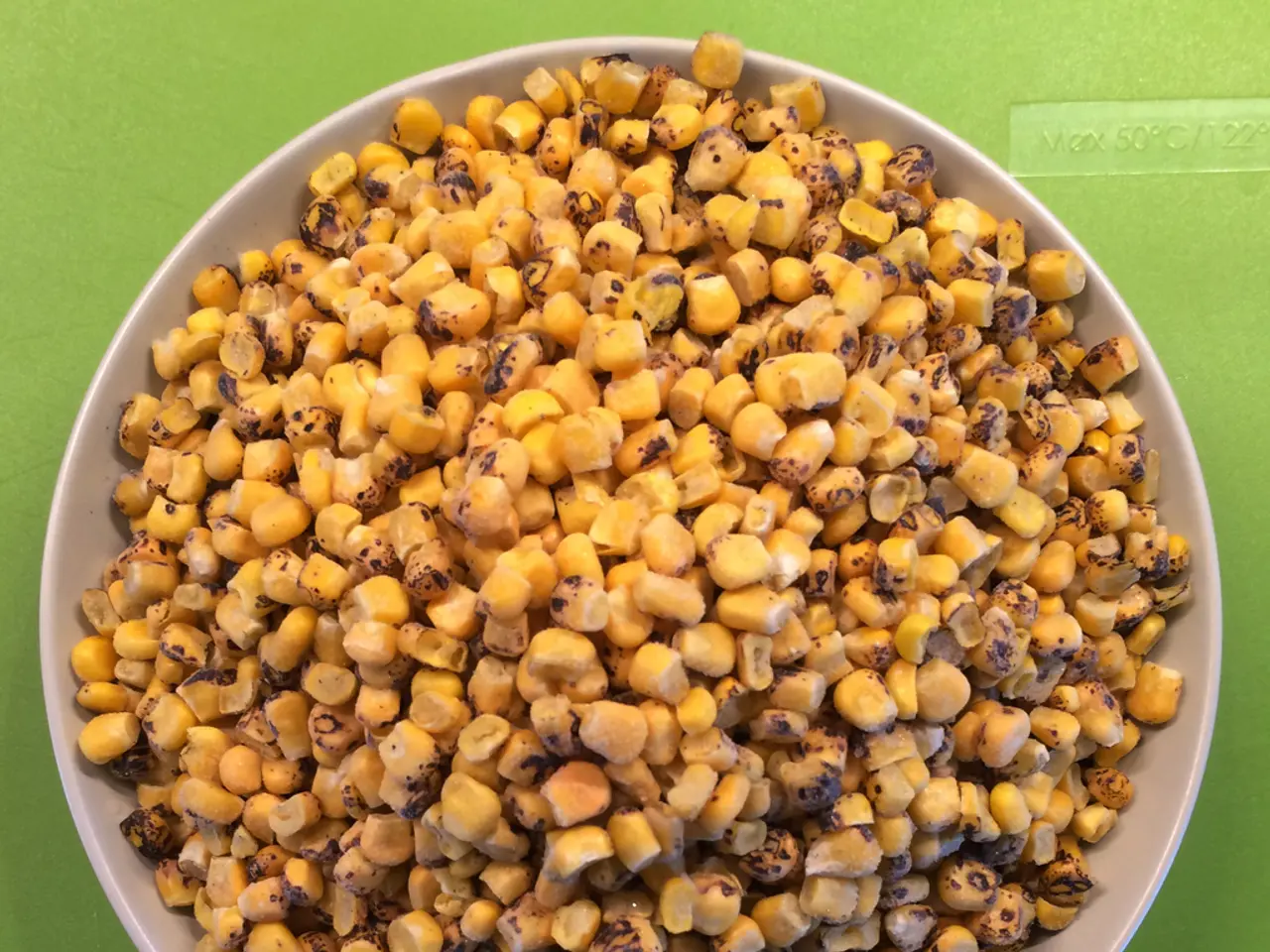Keto diet and its potential impact on bowel movements: Essential insights
In the world of low-carb diets, the keto diet has gained significant popularity for its potential health benefits. However, one common side effect that some individuals may experience is constipation. To help prevent and manage this issue, here are some strategies you can follow.
**Prevention Strategies**
1. **Hydration**: Maintaining good hydration is crucial. Aim to urinate at least four times a day with clear urine, indicating good hydration. 2. **Adequate Salt Intake**: Increasing your salt consumption can help with fluid retention. Aim for about 4-6 grams of sodium per day. 3. **Fiber Intake**: Incorporate fiber-rich foods like above-ground vegetables, nuts, seeds, psyllium seed husks, and ground flaxseed into your diet.
**Additional Tips**
- Regular physical activity can help stimulate bowel movements. - Ensure you are consuming a variety of keto-friendly foods to maintain a balanced diet. - Taking a walk after meals can aid digestion and help prevent constipation.
**Eating Keto-Friendly Foods**
Eating high fiber, low carbohydrate foods can provide the necessary fiber without disrupting your ketosis. For example, cauliflower, cabbage, and berries are good options.
**Treatment Options**
1. **Probiotics and Prebiotics**: These can support gut health and relieve constipation. 2. **Magnesium Supplements**: If constipation persists, consider using magnesium hydroxide (Milk of Magnesia) as a laxative. Start with small doses and consult a healthcare provider if necessary. 3. **Fiber Supplements**: While fiber supplements can help relieve constipation, they may contain carbohydrates, which could impair the body's ability to maintain ketosis. 4. **Low Carbohydrate Laxatives**: If constipation persists, a low carbohydrate laxative like polyethylene glycol (MiraLAX) may be considered.
**Understanding Ketosis**
When on a keto diet, the body taps into its glycogen stores and converts fatty acids into water-soluble molecules called ketone bodies as an alternative source of energy.
**The Benefits of Keto Diet**
Beyond weight loss, keto diets may have health benefits such as improving blood sugar control, reducing triglyceride levels, and lowering total cholesterol levels. Some studies also suggest that keto diets may reduce oxidative stress and inflammation and be beneficial for treating certain neurodegenerative and neuroinflammatory conditions.
**Why Constipation Occurs**
Constipation while on a keto diet may be due to changes in gut bacteria and the lack of fiber in the diet. People who follow a keto diet usually consume much less fiber than the recommended daily value, as they limit their intake of high fiber fruits, vegetables, and grains.
By following these strategies, you can effectively manage and prevent constipation on a keto diet, ensuring a smoother journey towards your health goals.
- On a keto diet, maintaining good hydration is essential, aiming to urinate at least four times a day with clear urine.
- Increasing your salt consumption can help with fluid retention, aiming for about 4-6 grams of sodium per day.
- Incorporate fiber-rich foods like above-ground vegetables, nuts, seeds, psyllium seed husks, and ground flaxseed into your keto diet.
- Regular physical activity can stimulate bowel movements, helping to prevent constipation while following a keto diet.
- Eating high fiber, low carbohydrate foods can provide necessary fiber without disrupting ketosis; for example, cauliflower, cabbage, and berries are good options.
- Probiotics and prebiotics can support gut health and relieve constipation, potentially improving digestive health on a keto diet.
- If constipation persists on a keto diet, consider using low carbohydrate laxatives like polyethylene glycol (MiraLAX) to maintain fitness, health, and wellness goals while managing digestive conditions.




